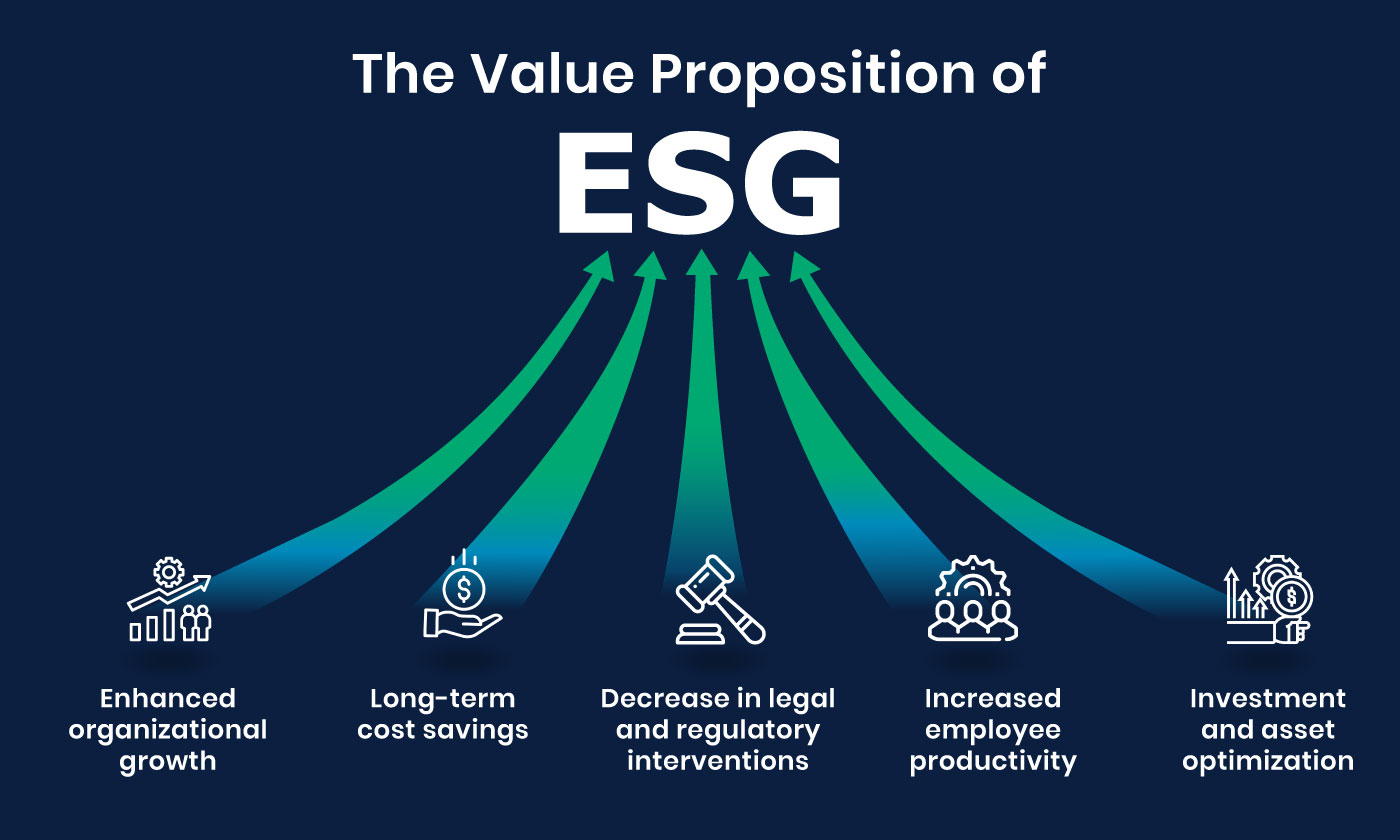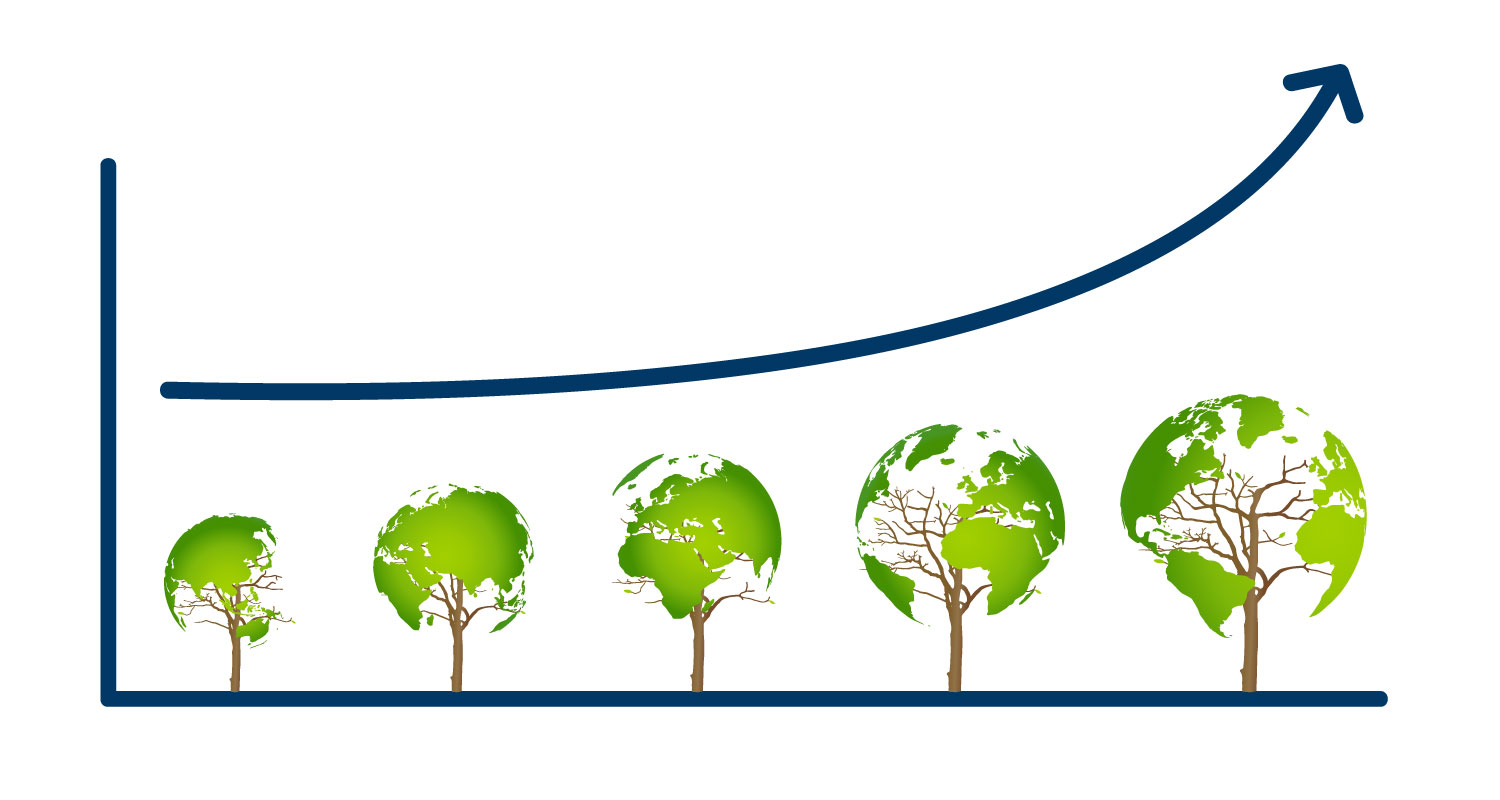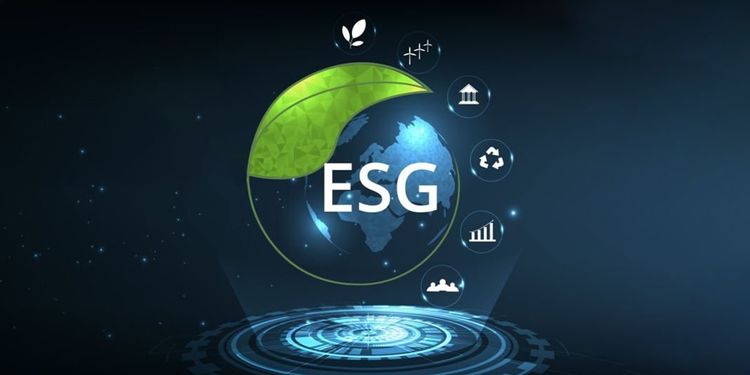While businesses may primarily be profit-driven enterprises, prospective investors today are more socially conscious than ever. This prompted them to consider non-financial factors, including sustainable, responsible, and ethical business practices, when screening potential investments. That is how ESG investing came to be.

What Is ESG Investing?
Environmental, social, and governance (ESG) investing, coined in 2005, has demonstrated that doing what is good for the environment and a company's bottom line does not have to be mutually exclusive.
Fast forward to today, we are witnessing a boom in ESG investing, encouraging corporations to operate responsibly and sustainably. This blog will delve deep into the benefits of having a robust ESG policy and explore current and predicted ESG investing trends.
Let us first look at a few major environmental, social, and governance factors that businesses need to take note of to attract responsible investment and ensure sustainability in modern times.
Environmental initiatives focus on conserving nature, promoting green energy usage, and dealing with issues like pollution, deforestation, waste management, and water wastage.
Social factors consider how an organization treats its employees and society and examine elements such as diversity and inclusion, labor relations, customer satisfaction, HR policies, data security measures, and human rights issues.
Governance refers to the organization’s internal operations and looks at factors including internal corruption, lobbying, diversity within the board, executive pay, and political contributions.
The Value Proposition of ESG
A synergistic strategy across the value chain of a business and in communities must drive action toward ESG. As a result, this strategy is gradually becoming a key component of an organization's value creation model.
To address a wide range of ESG issues, businesses must track the appropriate KPIs, incentivize management with those ESG metrics, and communicate performance improvements to various stakeholders.
According to a PwC report on ESG-focused institutional investment, global asset managers are expected to increase their ESG-related assets under management (AuM) to $33.9 trillion by 2026, up from $18.4 trillion in 2021. ESG assets are expected to account for 21.5% of total worldwide AuM in less than 5 years, with a predicted compound annual growth rate (CAGR) of 12.9%.
There are several benefits to creating and following a comprehensive ESG strategy, including aiding value creation for your business.

Let’s take a closer look at how and gain a better understanding of the value proposition of ESG.
Enhanced Organizational Growth
Investing in ESG practices can help your business expand and tap into new markets by driving customer preference. Today's socially responsible consumers are more likely to opt for sustainable products, with popular studies showing that a large cross-section is even willing to pay up to 5% more for sustainably manufactured and environmentally safe products. Strong green initiatives are a prerequisite to organizational growth and success today.
Organizations with an established ESG framework that engages in social-engagement activities are more likely to be trusted by the community and governing authorities and, thus, be granted permits, approvals, and growth opportunities.
Long-term Cost Savings
With effective ESG strategies in place, businesses can expect to spend substantially less on raw materials and operations. These savings stem from the efficient use of resources, including water and energy, and applying modern, sustainable processes to all operational aspects of the business.
Decrease in Legal and Regulatory Interventions
Businesses that adopt a robust ESG strategy have a better chance of achieving strategic freedom with less regulatory pressure and can take advantage of government support and earn subsidies.
The impact that government intervention can have on profits depends on the industry and varies from about 25% to 30% for consumer goods and the pharmaceutical industry to about 60% for banks, automotive, and tech industries.
Increased Employee Productivity
Organizations that incorporate strong ESG practices have a better chance of attracting and retaining quality employees and maintaining high levels of motivation among the workforce, which in turn boosts productivity.
Employee satisfaction is closely related to shareholder returns. This is demonstrated by the fact that businesses included in Fortune’s list of 100 best companies to work for consistently achieved 2.3% to 3.8% higher returns on their stocks against their competitors over a 25-year period.
Investment and Asset Optimization
A comprehensive ESG strategy will allocate capital to more sustainable and renewable assets or practices and avoid stranded investments that may lead to environmental issues.
Contrary to concerns about potential conflicts between financial ESG performance, 9 out of 10 asset managers, when asked, thought that including ESG in their investment strategy increases overall returns. 60% of institutional investors said that investing in ESG had already led to higher performance yields when compared to non-ESG equivalents.
While upgrading business operations to more sustainable practices may involve a substantial investment, doing nothing can cost much more in the long run. It is advisable to get ahead of the curve by repurposing assets at the earliest to prevent having to play catch up later.
The impact that each of these areas has on your specific business depends on several factors, including industry sector and geographic location, but it is important to keep in mind that they all have to potential to create considerable value for your organization.
How to Get Started with ESG Investing

Now is the time to start building an ESG-focused portfolio. Things may appear confusing with so many options to choose from, but the following points can help you build a solid ESG investment strategy.
-
- Build a DIY ESG Investment Portfolio or find an advisor
When you set out to build a portfolio of ESG investments, the first step is deciding whether you need some help. You could pick and choose specific ESG investments that resonate with you or recruit an automated investing service or digital robo-advisor to help build your portfolio.
If you pick the former, you will need to open a brokerage account and can use screening tools to help select appropriate ESG investments. Suppose you use an automated investing service to guide your ESG investment strategy. In that case, the service should be able to consider your specific risk and tolerance goals when building your portfolio. - Define Your ESG Standards
It is important to establish your own ESG criteria, which will help you select investments that align with your personal values and beliefs. - Choose Your ESG Investments
Once you have decided on a way forward and defined the criteria and values that are important to you, you can start building your portfolio. Keeping up with independent reviews from reputable research firms will help you make informed investment decisions by revealing a potential investment opportunity’s ESG scores.
- Build a DIY ESG Investment Portfolio or find an advisor
ESG Investing Vs. Socially Responsible Investing Vs. Corporate Social Responsibility
Along with ESG, you should be familiar with socially responsible investing (SRI) when working to build a sustainable and socially responsible portfolio. While they occasionally overlap and are frequently used interchangeably, it is important to be able to distinguish between the two.
ESG deals exclusively with measuring the sustainability of an organization or proposed investment in areas relating to environmental, social, and governance factors. It is about identifying organizations that positively impact these areas for inclusion in your investment portfolio.
On the other hand, SRI excludes or disqualifies certain investments based on ethical or moral grounds. These may include manufacturers of dangerous, controversial, harmful, or addictive products such as weapons, explosives, alcohol, and tobacco products or organizations engaged in human rights abuse or gambling.
Corporate social responsibility (CSR) refers to the actions and initiatives taken by a business toward the overall betterment of the community and the environment. Robust CSR strategies work towards creating and maintaining a positive public opinion about the organization and are often crafted with an eye on ESG issues.
Evaluating Corporate ESG Performance
ESG is more than a list of checkboxes. It's all about making a difference for your company and the world and creating long-term results that add value and fuel growth while supporting our environment and societies.
So, how well does your company stack up? A new business environment necessitates new ways of thinking - one that integrates ESG investing performance metrics into all aspects of your business and ensures optimum transparency.
There are two approaches to discovering which ESG metrics an organization is prioritizing and evaluating an organization’s ESG performance — the businesses’ own corporate reporting and third-party sources. Let’s take a closer look at each.
-
- Corporate Reporting
Organizations engaged in ESG activities will publish periodic sustainability reports highlighting ESG investment management goals and regular updates on the progress toward these goals. Not all sustainability reports are created equal, so pay more attention to reports that follow the Global Reporting Initiative’s ESG standards or those laid down by the United Nations Principles for Responsible Investment. - Third-Party Sources
You can validate the authenticity of your reports with assistance from third-party sources, including MSCI ESG Ratings and Sustainalytics ESG Ratings.
- Corporate Reporting
Popular environmental metrics to look out for when conducting an ESG evaluation include an organization’s carbon footprint, greenhouse gas emissions, pollution, recycling activities, waste management, deforestation, and water usage.
Social metrics include CSR activities, diversity, and inclusion within the organization, data protection and privacy, labor standards, animal welfare, responsible sourcing, and supply chain sustainability.
Governance metrics include diversity across the board and senior management, shareholder rights, lobbying activities, executive compensation, reporting and disclosures, shareholder actions, and investor relations.
Why Do You Need ESG Experts for Your Business?
Sustainability is a complicated subject that calls for multiple, company-wide strategies more often than not. Even the best technology in the world cannot succeed without the proper procedures. Because of this, businesses need specialized services to assist them in overcoming their unique ESG challenges.
Businesses often lack the in-house expertise to craft comprehensive, dynamic, and efficient ESG strategies that will appeal to today’s socially conscious investors, consistently exceed their expectations and evolve with the times. Therefore, it is important to consult with an ESG expert and ensure that your organization’s environmental, social, and governance factors and initiatives are relevant and effective.
The Knowledge Ridge Advantage
At Knowledge Ridge, we are committed to helping organizations in managing their sustainability and ESG interests using cutting-edge, original, and productive solutions that provide results. We have an exceptional track record in innovation and best practices. Through our expert network services, we establish strategic answers that create long-term value and unearth new opportunities to assist businesses in achieving results.
With access to a global network of custom-vetted experts across various industries, Knowledge Ridge can connect you with the right ESG expert to guide you toward building a contemporary ESG strategy specifically suited to your organization and its goals.
Whether you've been monitoring and reporting non-financial information for years or are just getting started, we're here to help you every step of the way with services such as:
-
- Designing a personalized ESG approach
- SDG benchmarking and mapping
- Creating customized frameworks
- Sustainability report writing
- Performing carbon footprinting
Reach out to learn more about how your organization can achieve its long-term environmental, social, and governance investing objectives.
Frequently Asked Questions
What Are the Most Common ESG Metrics?
ESG metrics are performance measures or indicators of a company's performance on environmental (E), social (S), and governance (G) issues.
-
- Popular environmental metrics include an organization’s carbon footprint, greenhouse gas emissions, pollution, recycling activities, waste management, deforestation, and water usage.
- Social metrics include CSR activities, diversity, and inclusion within the organization, data protection and privacy, labor standards, animal welfare, responsible sourcing, and supply chain sustainability.
- Governance metrics include diversity across the board and senior management, shareholder rights, lobbying activities, executive compensation, reporting and disclosures, shareholder actions, and investor relations.
What Does ESG Mean in Investing?
ESG investing is the practice of socially and environmentally responsible investors who screen possible investments by taking into account a variety of criteria, such as ethical, responsible, and sustainable company practices, in addition to financial performance.

